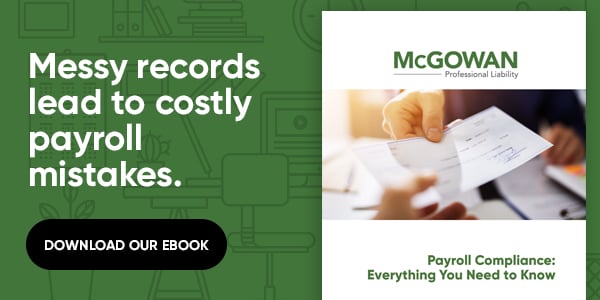Seventy-three percent of all teams will include remote workers by 2028. Companies must contend with an increasingly global workforce, managing payroll for employees in different countries, states, and jurisdictions.
Maintaining payroll compliance in this environment is a daunting task. Laws are constantly changing, and companies often need guidance to ensure compliance. We’ve put together our best practices to help your company with its payroll compliance efforts in 2023.
What is Payroll Compliance?
While a vast subject, payroll compliance essentially deals with the legal requirements a company must fulfill when processing payroll and filing payroll-related taxes. Some common tasks include paying employees, holding back pay from paychecks intended for welfare benefits, end-of-year payroll tax filings, and more.
Companies must ensure every employee receives the essential information for their annual tax return filings. They can use legal counsel for help, but they can also take a few steps to help them remain compliant.

Know Your Employment Laws
Many labor regulations deal with payroll compliance—from the Fair Labor Standards Act (FLSA) to the Federal Unemployment Tax Act (FUTA). They are also often changing, being updated to be more inclusive or to correct payment hiccups of the past.
Part of a Human Resources (HR) department’s role is to stay on top of law and regulatory changes, which can be done by subscribing to trusted resources, including:
- U.S. Department of Labor
- U.S. Equal Employment Opportunity Commission
- Society for Human Resource Management
- Local Department of Labor (DOL) pages
Also read: Combatting Sexual Assault in the Workplace
Keep All Employee Records
Losing track of employee records is common, but it’s also one of the most significant sources of payroll non-compliance. Companies should keep files on their employees for between three and seven years. These should include any contracts, their benefits package, their responsibilities, and more.
It’s also crucial that employees are classified correctly. If a worker is labeled as a contractor when working under full-time, salaried conditions could mean they are being deprived of their owed compensation or protections. The result could be fines or even paying back taxes owed.
Keep Paperwork and Forms in Order
Companies also must stay on top of various forms needed for payroll compliance. Understanding their purpose and when to implement them will help keep companies compliant and alert them when legislation changes. A few forms companies typically need to be aware of include:
- I-9 Forms: Collecting an I-9 form from employees is done to document their eligibility to work.
- W-2: Companies must also send their employees a W-2 at the end of each tax year for use in their federal and state tax filings.
- 1099 and 1096: Contractors receive their own form known as Form 1099-MISC. After filing a 1099, employers must file their own 1096 when doing their taxes as a summary for the IRS of issued 1099 forms.
- Form 941: Once per quarter, employers must file Form 941 to report withholdings from employee paychecks for income taxes, Social Security tax, and Medicare tax.
Also read: Preparing for the June 9th FTC Safeguards Rule Change
The Advent of Remote Working
With the massive surge in remote workers, companies will likely face complications around global payroll.
Employees working in different states can cause payroll tax penalties or even expose companies to corporate taxes or corporate income tax return requirements in other states or countries. To avoid these negative aspects of remote working, companies should:
- Create a centralized global remote work policy that educates employees on tracking travel and dictates where they can and cannot work.
- Create a channel for different departments to contribute their expertise, such as legal and social security.
- Use technology and third parties to fill any process gaps.
Employee Benefits and Leave
One of the main selling points a company can have is its benefits package, but many of the benefits are already government mandated.
Companies must comply with legislation such as the Employee Retirement Income Security Act (ERISA) and the Family and Medical Leave Act (FLSA), which help manage how leave and medical care are handled. Companies also must pay minimum wage and overtime wages and classify employees accordingly if they are exempt. States will have different minimum wage requirements, which should be understood and followed beyond federal requirements.
Download our eBook: Payroll Compliance: Everything You Need to Know
The Payroll Compliance Bottom Line
Ultimately, payroll compliance is a complicated process for every company, but taking the proper steps to implement processes now will pay dividends in the long run. No company wants to face tax season and realize it has not kept adequate records of its employees, just as no company wants to have the IRS knocking on its doors. For all its complications, payroll compliance is one of the simplest ways a company can keep its employees paid and doors open.
The reality is that payroll compliance achieves more than just complying with tax and labor laws. It communicates that your company delivers a fair, consistent labor experience to employees and customers. Providing the right benefits package and meeting payroll compliance requirements can bolster a company’s reputation and even attract better talent. Implementing these processes now will help your company in the long run and may even be a reason for its continued success.
No matter how diligent your company is in establishing and following processes, lawsuits happen. McGowanPRO has decades of experience providing highly customizable insurance coverage to companies and employers. Our Employment Practices Liability Insurance policy will give you the peace of mind to focus on providing a positive work experience for your employees.
Contact us today to learn more.

